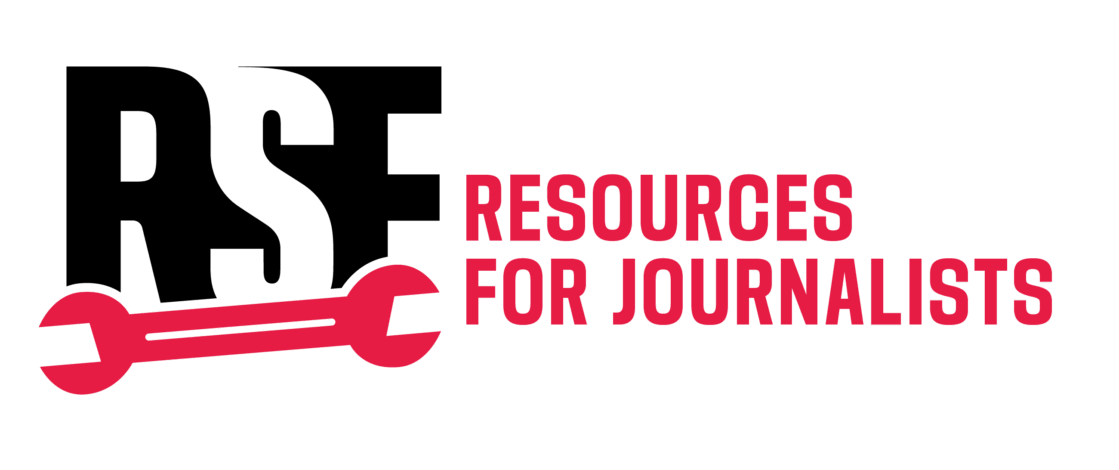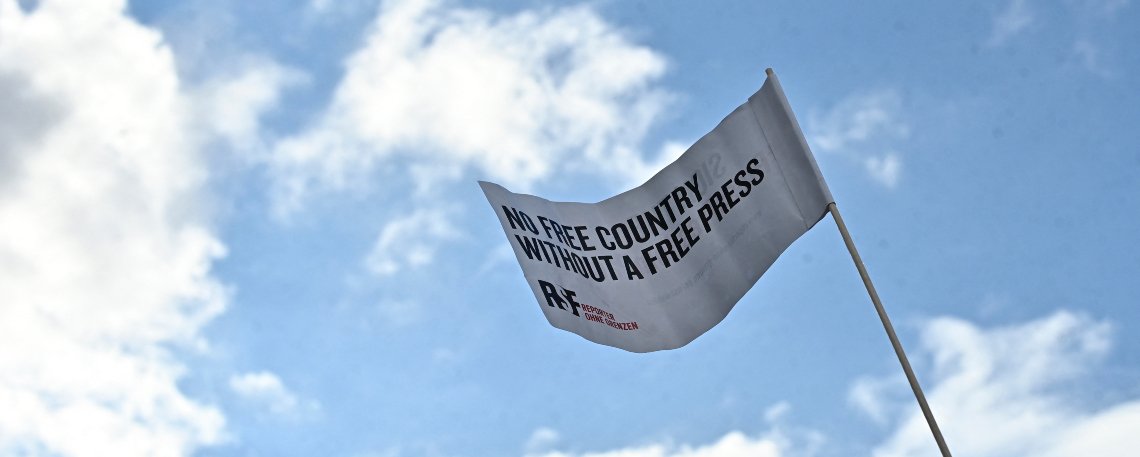In some countries, a journalist can be thrown in prison for years for a single offending word or photo. Jailing or killing a journalist removes a vital witness to events and threatens the right of us all to be informed. Reporters Without Borders (RSF) fights for press freedom on a daily basis.
From its creation in Montpellier in 1985 to its nomination for the Nobel Peace Prize in 2014 and 2021, RSF has grown to become an international NGO with a presence in all five continents and consultative status with the United Nations and UNESCO. Nowadays its activities span the entire globe thanks to its national sections, bureaux in Washington, Rio de Janeiro and Brussels and a network of more than 150 correspondents.
Through its daily work and its campaigns, RSF:
- Defends journalists and media assistants imprisoned or persecuted for doing their job and exposes the mistreatment and torture they are subject to in many countries.
- Fights censorship and laws that undermine press freedom.
- Provides financial aid each year to around 100 journalists or media outlets in need (to pay for lawyers, medical care and equipment) and to the families of imprisoned journalists.
- Works to improve the safety of journalists, especially those reporting in war zones, by providing them tailored insurances, equipment, digital safety training and a 24/7 hotline.
Fighting for journalists’ safety
RSF played a key role in 2006 and 2015 in getting the United Nations Security Council to vote resolutions 1738 and 2222 on the protection of journalists in armed conflicts. RSF now campaigns for improvements in the implementation of international law, including:
- The appointment of a special representative to the UN Secretary-general on the protection of journalists, with the task of monitoring member states’ compliance with resolutions protecting media workers. The adviser would draft recommendations, alert the Secretary-general of any abuses affecting news providers and undertake investigations into acts of violence against journalists in the event that no investigation has been carried out by the relevant member state.
- That the UN Security Council refer to the International Criminal Court (ICC) the crimes committed against journalists in Syria and Iraq, crimes that can be regarded as war crimes under international law.
- To ensure protection for all news providers, both professional and non-professional (bloggers, “netizens”), and both in wartime and peacetime.
Practical assistance
The safety of journalists largely depends on the precautions they take while on the job: that is why RSF lends them helmets, bulletproof vests and GPS personal locator beacons, offers digital safety training and insurance for freelance reporters.
→ To enquire about this equipment, email assistance@rsf.org.
A guide for everyone working in news and information
RSF offers reporters this handbook, published in partnership with UNESCO and translated into several languages. It is aimed mainly at journalists who travel to dangerous spots and provides practical advice on how to avoid pitfalls in the field, as well as highlighting international legal standards protecting press freedom.
The guide does not claim to be exhaustive or infallible, but it contains practical advice to follow before, during and after an assignment in dangerous areas. It is aimed at all those who work in news and information. The murders in 2014 of the U.S. journalists James Foley and Steven Sotloff, who were freelancing in Syria, were a sad reminder of the growing risks facing freelance journalists who travel on their own initiative to hostile parts of the world.
With this in mind, some 60 news outlets and journalists’ protection organisations – including RSF – met in New York in February 2015 to draw up an employers’ code of conduct designed to protect freelance journalists on dangerous assignments. Chapter 5 gives details of this international effort and some examples of action taken by several news organisations to improve journalists’ safety.


